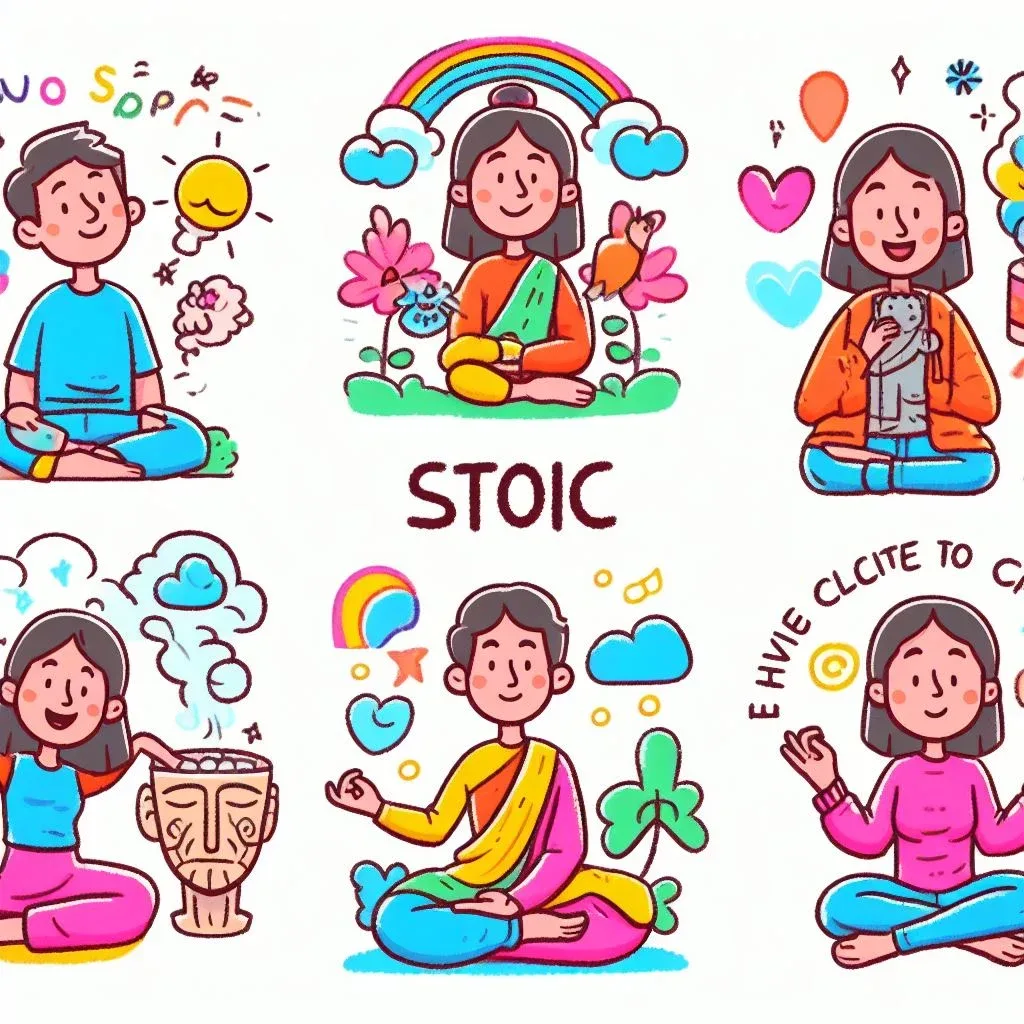Stoics, followers of ancient Stoic philosophy, take a unique approach to living their lives. They value virtue, serenity, and moral excellence, and these fundamental principles guide their actions in a variety of situations. In this blog post, we will explore in detail how a Stoic acts, analyzing their worldviews and how they deal with varying challenges and circumstances.

Stoic Worldview

Before understand how a Stoic acts, it is essential to understand their worldview. Stoics believe that:
- What is under control: They recognize that they only have control over their own actions, choices and attitudes. Everything else, including external events and the behavior of others, is beyond your control.
- What is not under control: They calmly accept that external events are uncertain and often unpredictable. Instead of resisting it, they embrace the impermanence and uncertainty of life.
- The role of virtue: Virtue is the supreme good and the central goal of life. Pursue moral excellence in all actions is the path to happiness and personal fulfillment.
How a Stoic Acts in Different Situations

1. In the Face of Adversity
A Stoic faces adversity with calm and courage. Instead of despairing, they calmly accept the circumstances they cannot change and focus on what they can control: their responses and attitudes. They apply virtue, acting with courage and justice, even in the most challenging situations.
2. In Interpersonal Relations
In interpersonal relationships, Stoics value empathy, compassion and respect. They apply the virtue of benevolence by treating others with kindness and equity. Furthermore, they avoid impulsive reactions and unnecessary conflicts, maintaining serenity even in the face of disagreements.
3. Making Ethical Decisions
For a Stoic, making ethical decisions is a priority. They carefully consider the moral implications of their actions and choices. If a decision is just and virtuous, they follow it regardless of the personal consequences.
4. Dealing with Success and Failure
Success and failure are seen by Stoics as external and temporary. They do not allow themselves to be carried away by pride or hopelessness when they achieve or lose something. Instead, they maintain an emotional balance, recognizing the ephemeral nature of achievements and defeats.
5. Practicing Self-Discipline
Self-discipline is a key characteristic of Stoics. They develop the ability to control impulses, avoid excesses and stay focused on their virtuous goals. This applies to areas such as diet, exercise, financial spending and time use.
6. Living in the Present Moment
Although Stoics value planning and preparation, they also emphasize the importance of living in the present moment. They recognize that the only moment they really have is now and practice mindfulness, enjoying each moment with gratitude and serenity.
Conclusion
A Stoic acts in accordance with his or her fundamental principles, prioritizing virtue, serenity, and moral excellence in all situations in life. They face adversity with courage, maintain relationships based on empathy, and make ethical decisions. By following the Stoic path, they seek not only personal happiness, but also the construction of a more just and virtuous society.
This blog post provided a detailed look at how a Stoic acts, highlighting their worldviews and how they deal with various life situations according to Stoic principles.
FAQ: How a Stoic Acts

1. What is the main purpose of a Stoic's behavior?
The main purpose of a Stoic's behavior is to pursue virtue and moral excellence in all actions. They believe this leads to true happiness and well-being.
2. How do the Stoics deal with adversity?
Stoics face adversity with serenity and courage. They accept what they cannot control and apply virtue, acting with justice, courage and benevolence.
3. Do Stoics avoid interpersonal conflict?
Stoics value empathy, respect, and justice in interpersonal relationships. They avoid unnecessary conflicts, but do not hesitate to defend ethical principles when necessary.
4. How do Stoics make ethical decisions?
Stoics carefully consider the moral implications of their actions and choices. They prioritize virtue and make ethical decisions regardless of personal consequences.
5. How do the Stoics deal with success and failure?
Stoics view success and failure as external, temporary events. They maintain an emotional balance, avoiding excessive pride in success and hopelessness in failure.
6. What is the role of self-discipline in the life of a Stoic?
Self-discipline plays a fundamental role in the life of a Stoic. They control impulses, avoid excesses, and stay focused on virtuous goals as part of their pursuit of moral excellence.
7. How do Stoics live in the present moment?
Although they value planning and preparation, Stoics also practice mindfulness and value the present moment. They recognize that now is the only real moment they have.
8. Do Stoics believe that ethical behavior is always easy?
No, the Stoics recognize that ethical behavior can be challenging. However, they see the pursuit of virtue as the most rewarding path, even in the face of difficulties.
9. Can I adopt stoic behavior in my everyday life?
Yes, you can adopt Stoic principles in your everyday life. Start with the practice of calm acceptance, self-discipline, and ethical reflection. The Stoic Journey is Personal and can be adapted to your circumstances.
These are some of the most common questions about how a Stoic acts. By incorporating Stoic principles into your life, you can cultivate virtue, serenity and moral excellence, seeking a more meaningful and ethical life.






